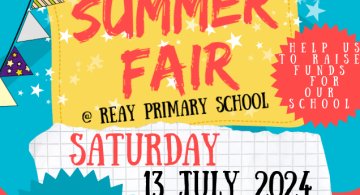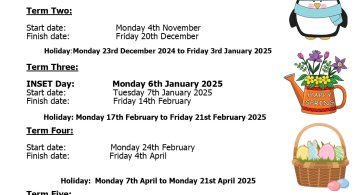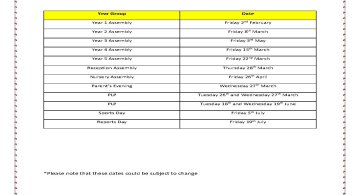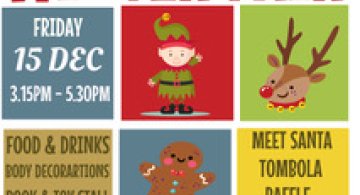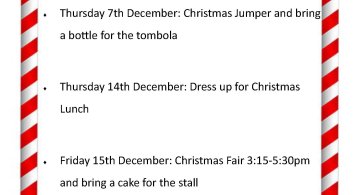At Reay we want children to develop a love of maths and become confident mathematicians. We love taking part in maths competitions – and we’re brilliant at it, winning the London-wide 2021 Count On Us maths competition. We have a fantastic outdoor space and garden at Reay which produces unique opportunities for children to use natural resources to support their learning in maths.
Maths is taught daily in every year group, with additional time during the week for short mental maths sessions focusing on rapid recall of number facts and mental strategies for calculation.
Maths lessons
Maths is taught daily in every year group. We use the White Rose scheme of work to support our teaching and learning and to ensure continuity across the school. We use practical resources and pictorial representations to help develop children’s conceptual understanding before moving onto formal and informal written methods. We enjoy teaching whole maths lessons and mental maths sessions in different areas of the school and often use the hall or outdoor areas for practical lessons.
Problem solving
Problem solving is a key part of our teaching in maths. Throughout the school we use the White Rose model of problem solving and reasoning which enables the children to apply their knowledge and use of strategies from similar problems they have encountered as they progress through the school. We also use problems and games from the Nrich website to support our curriculum and inspire a love and enjoyment of maths.
Our approach to times tables
We have developed a new and effective approach to teaching times tables across KS1 and lower KS2 so that our children have a sound understanding of all times tables to 12 x 12 and the corresponding division facts by the end of Year 4.
Starting in Year 2 we follow a programme where a new times table is taught each half term. This gives children time to consolidate their knowledge and commit these facts to long term memory before starting to learn a new set of facts. We follow a programme of 3 lessons when introducing each times table which focus on conceptual understanding through array, pattern seeking and problem solving. We use one-to-one interventions and precision teaching to support children with gaps in their knowledge so that all children are able to progress together and are ready for the national multiplication test at the end of Year 4.
Mental maths
Developing children’s confidence with mental maths is central to our approach to teaching maths at Reay and we see it as an important life skill. Mental maths strategies are taught progressively through the school and we teach the children a range of strategies for the four calculations so that they learn to select the most appropriate and efficient one to solve calculations.
Additional time in the week is used to revisit mental calculation strategies and number knowledge. We believe that through repetition and revisiting key number facts, such as doubles and halves and number bonds, children are able to commit facts to long term memory and improve quick recall. This helps our children at Reay become confident mathematicians.
Maths Language
Alongside learning new maths strategies and facts, there is a huge amount of new maths vocabulary for the children to learn during their time at primary school. At Reay, new vocabulary is introduced in practical ways such as with the use of dienes or pictorially. Displays of relevant vocabulary around the classroom support the children’s understanding of key words. As part of our approach to problem solving the children are regularly encouraged to answer reasoning questions. These types of problems involve the use of key vocabulary to explain answers and the children are able to develop these skills through whole class modelling, partner work and written work.
Each term, from Reception to Year 2 the children take home a family maths scrap book from the National Numeracy Organisation containing activities to complete at home. These are fun tasks designed to be completed by an adult and child together and they are a great way of supporting maths talk at home as well as showing parents and carers the different areas of the curriculum.
Maths in the Early Years
Reception follow the White Rose scheme of work, with a daily whole class maths input. There is a strong focus on the composition of number so that children are equipped with a good understanding of numbers to 10 and beyond, ready for KS1. Maths is taught through different contexts such as role play, puppets, puzzles and songs and is embedded into daily routines such as counting the number of children in a line. Throughout the week children take part in maths tasks led by an adult and activities which are available in the environment throughout the day. Open-ended investigations and problem solving activities are used to extend and challenge children.
In Nursery there is a range of maths related activities and resources on offer which adults encourage children to explore through play. Nursery rhymes, songs and books are used to introduce maths in different contexts and maths is used in every day routines and games. There is a strong focus on exposing children to early mathematical language through play.
Assessment in Maths
We use the White Rose end of unit assessments as a way to check children’s understanding at the end of each topic taught. Gaps in knowledge and understanding are then addressed through short mental maths sessions or additional lessons. In addition we use White Rose assessments before beginning each topic to inform us of the children’s prior knowledge. This means that we are able to plan effectively and target children who may need additional support in certain areas. At the beginning of the Autumn Term, Years 3, 4 and 5 take a test base paper which presents all the areas of the maths curriculum the children have covered as one test. This helps us assess how well children have been able to commit their learning to long term memory. The results of these tests are then used to help highlight focus areas for the start of the academic year. We also use these results to look for whole school trends and areas which need to be a focus across the school.
Maths competitions
At Reay we love taking part in maths competitions – and we’re brilliant at it! We have taken part in local Lambeth competitions as well as national competitions. Every year we take part in the Count on Us competition run by the Mayors Fund for London, involving over a 100 schools from all over London. This is a brilliant competition which involves shape puzzles, problem solving using dominoes, code breaking and the 24 Game which focuses on quick mental calculation. We hold maths clubs and competitions between classes before a team is selected to represent our school. In 2021 we were the proud winners of this competition which was a fantastic moment for our school and we have since been finalists on several occasions.
Curriculum Knowledge and Progression in Counting and Place Value, Addition and Subtraction
Curriculum Knowledge and Progression in Multiplication and Division
Curriculum Knowledge and Progression in Fractions, Decimals and Percentages
Curriculum Knowledge and Progression in Measure
Curriculum Knowledge and Progression in Shape
Curriculum Knowledge and Progression in Statistics
Algebra, Ratio and Proportion
Maths Review
Calculation for Addition and Subtraction
Calculation for Multiplication and Division

